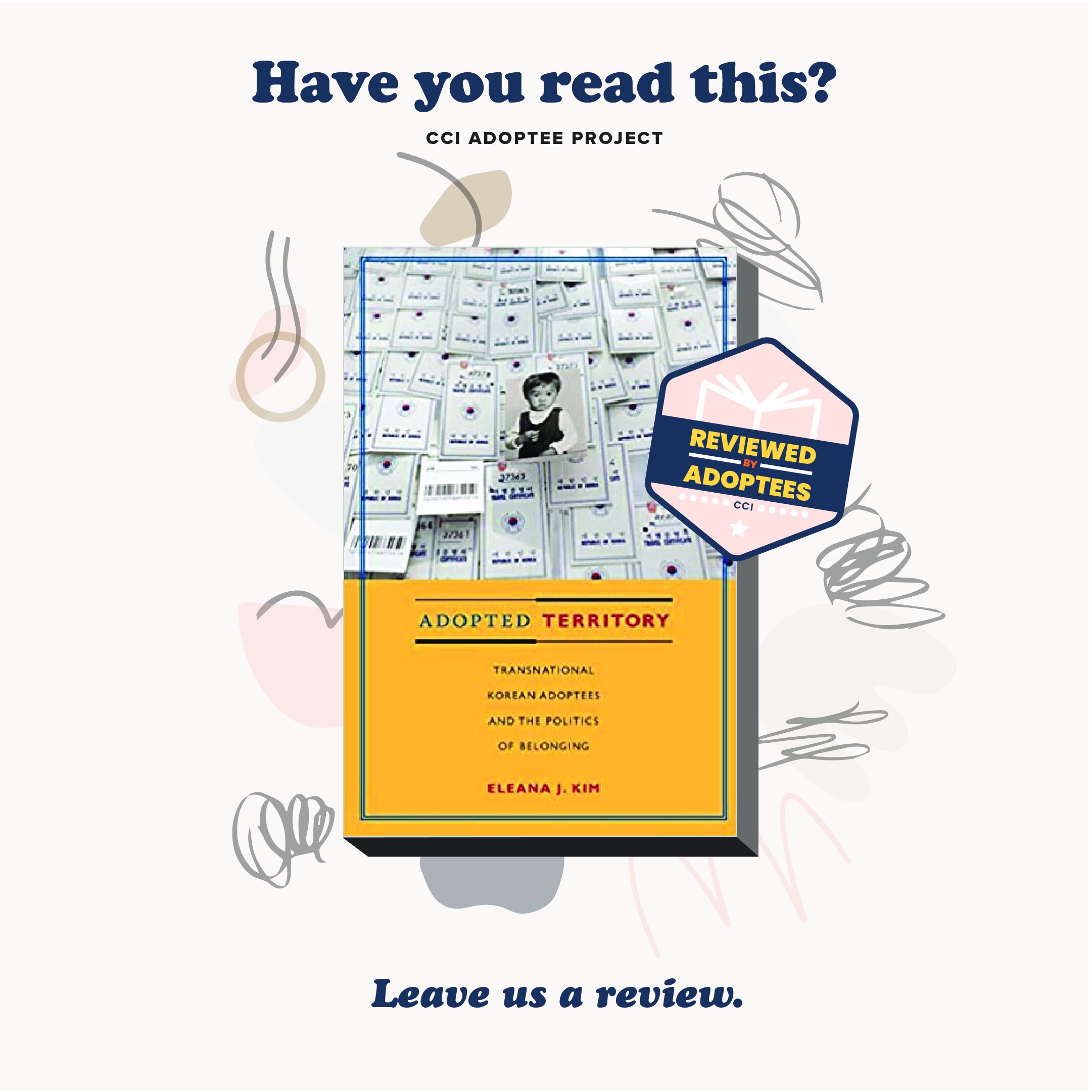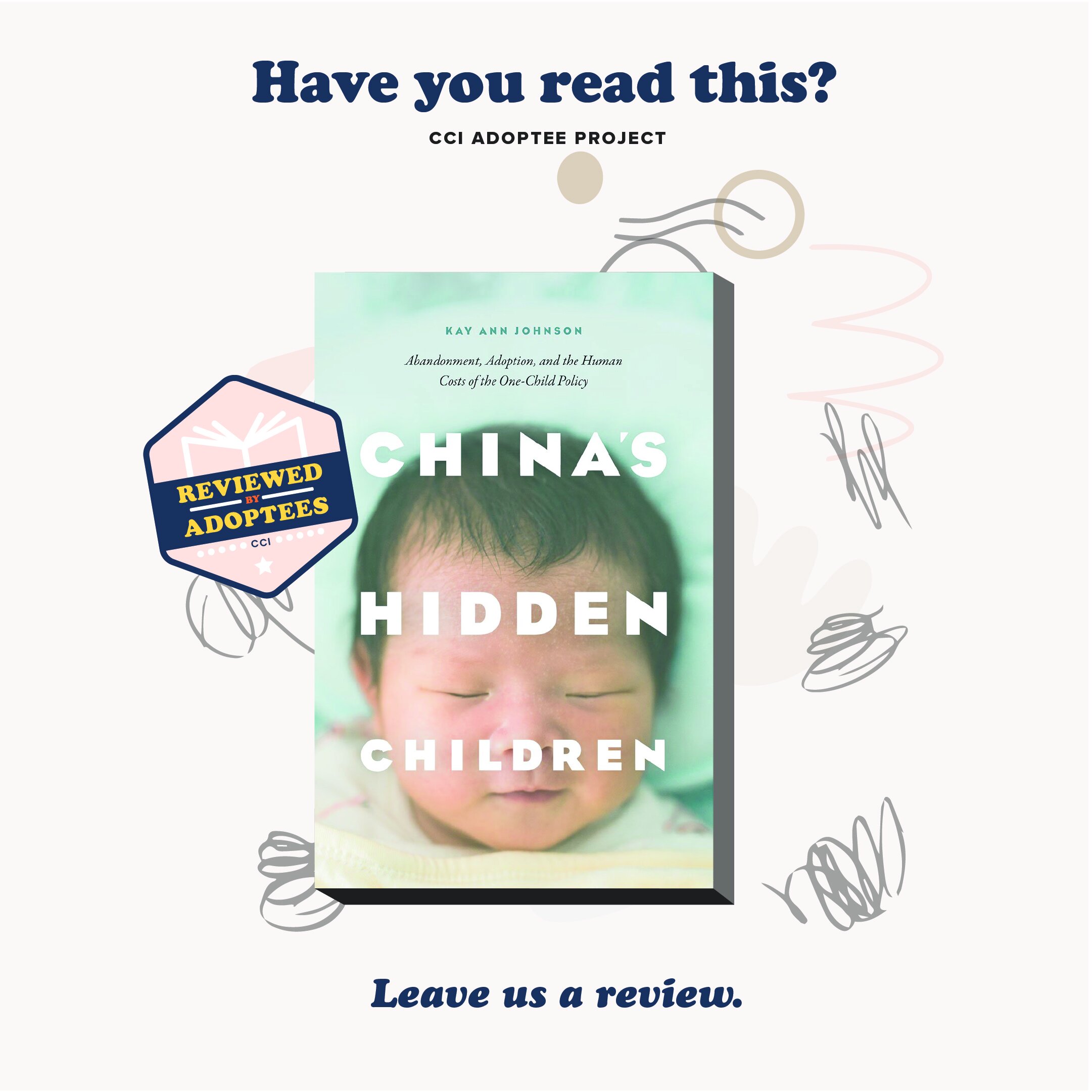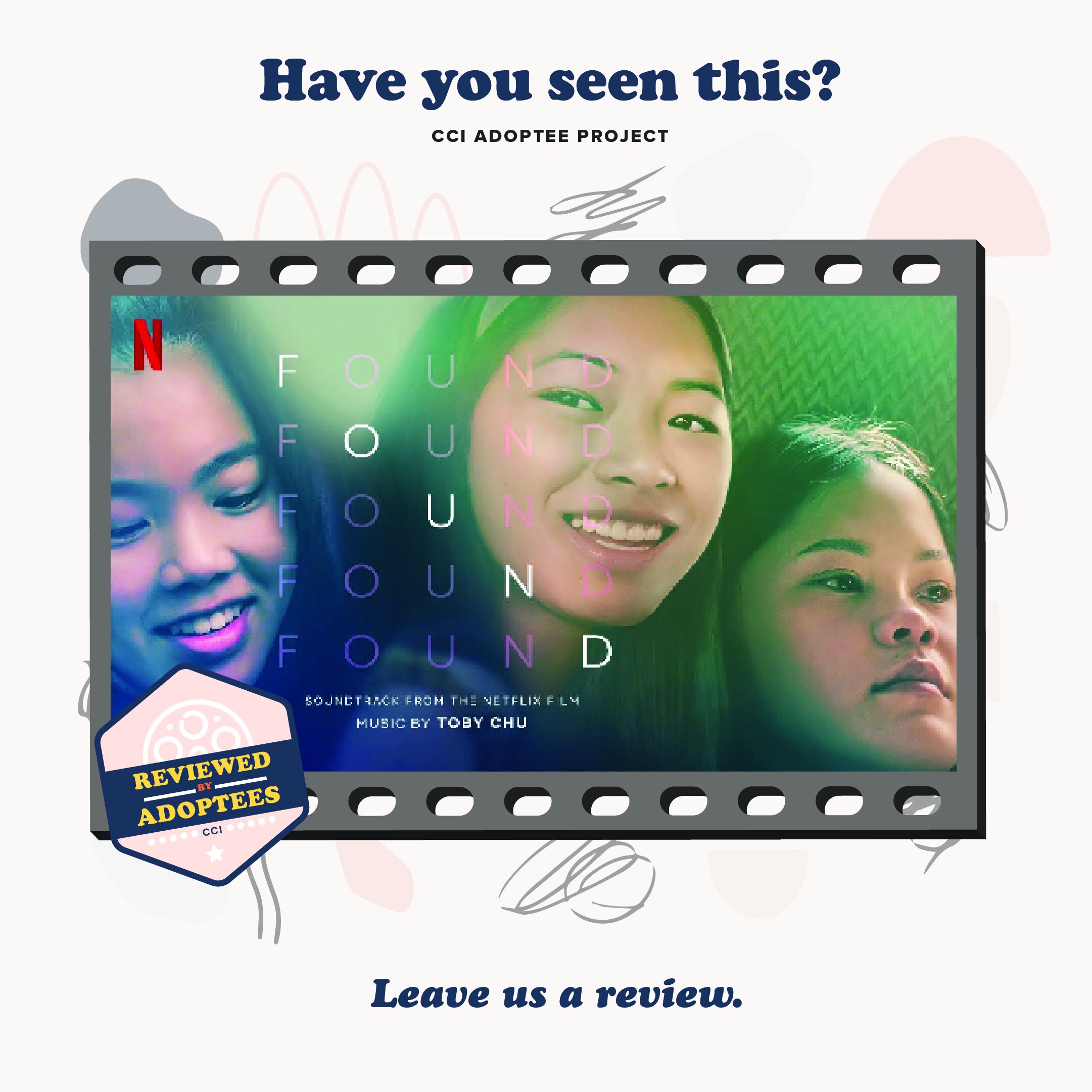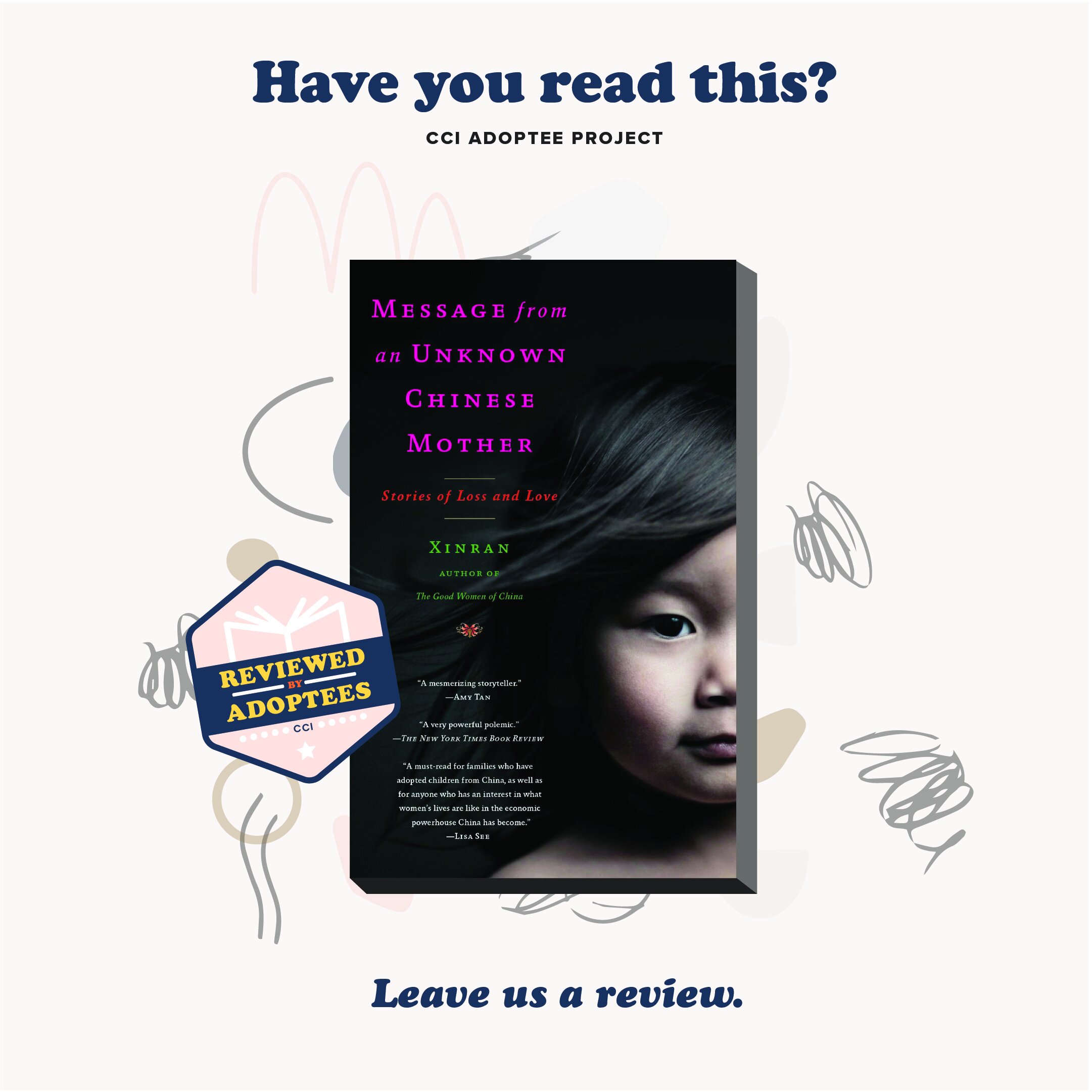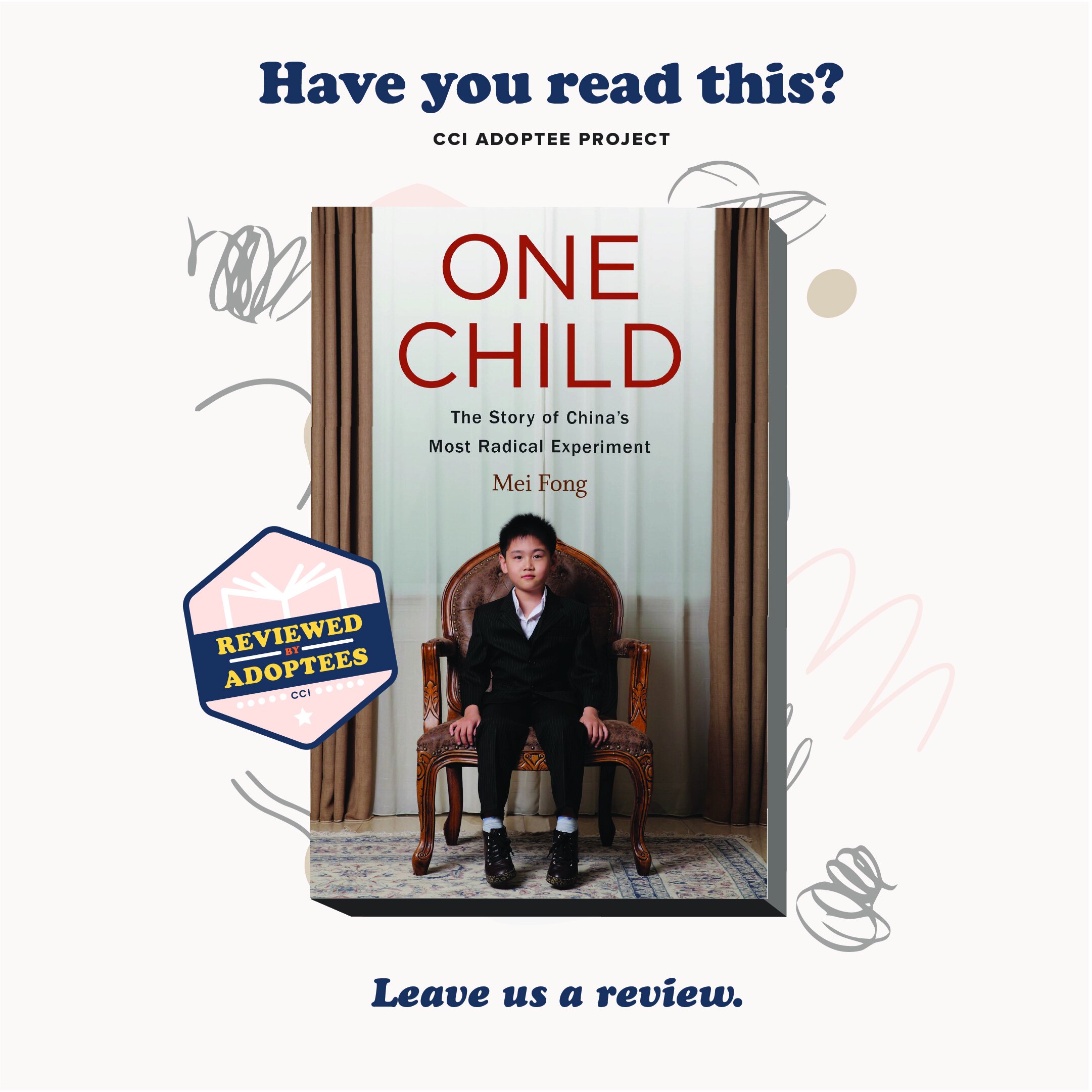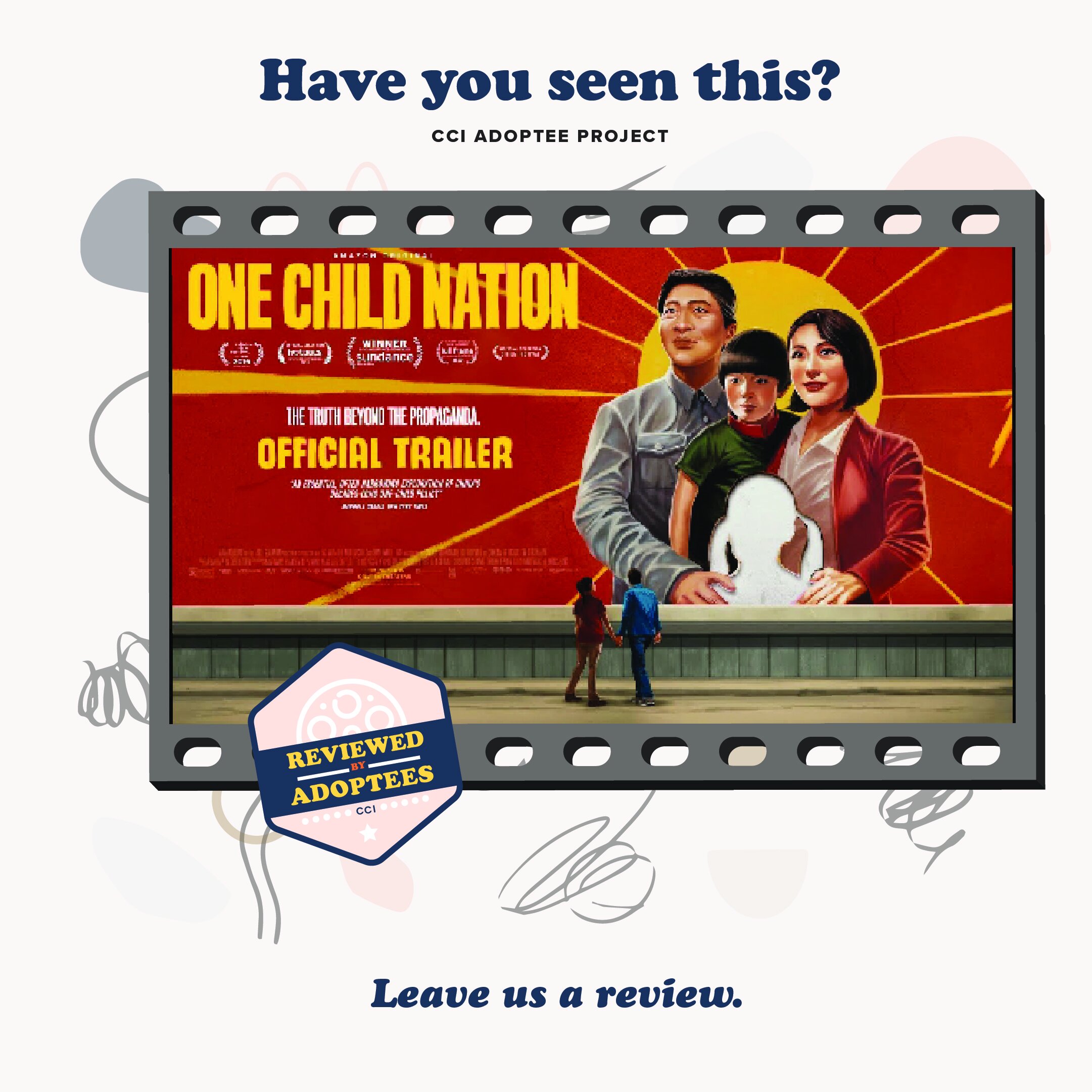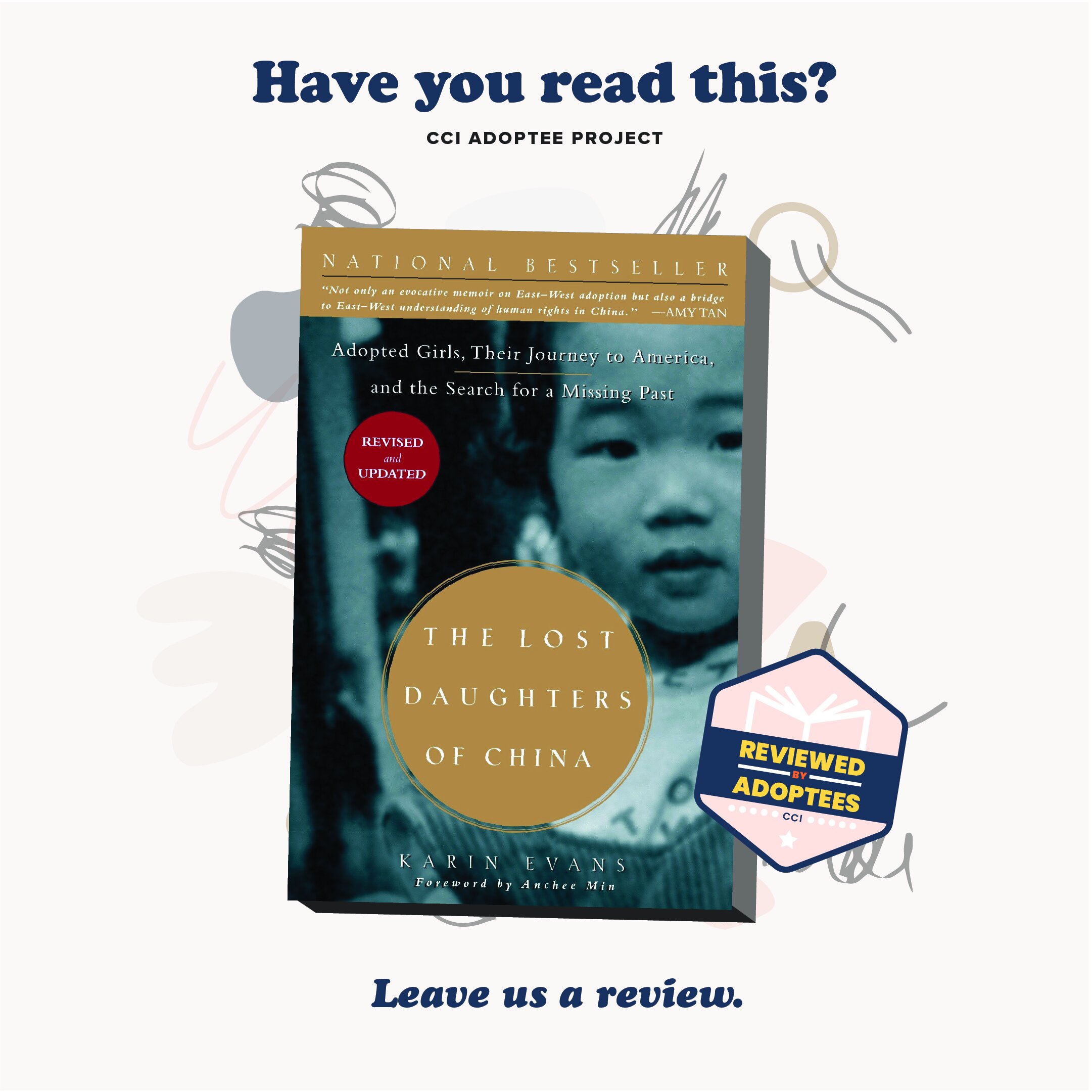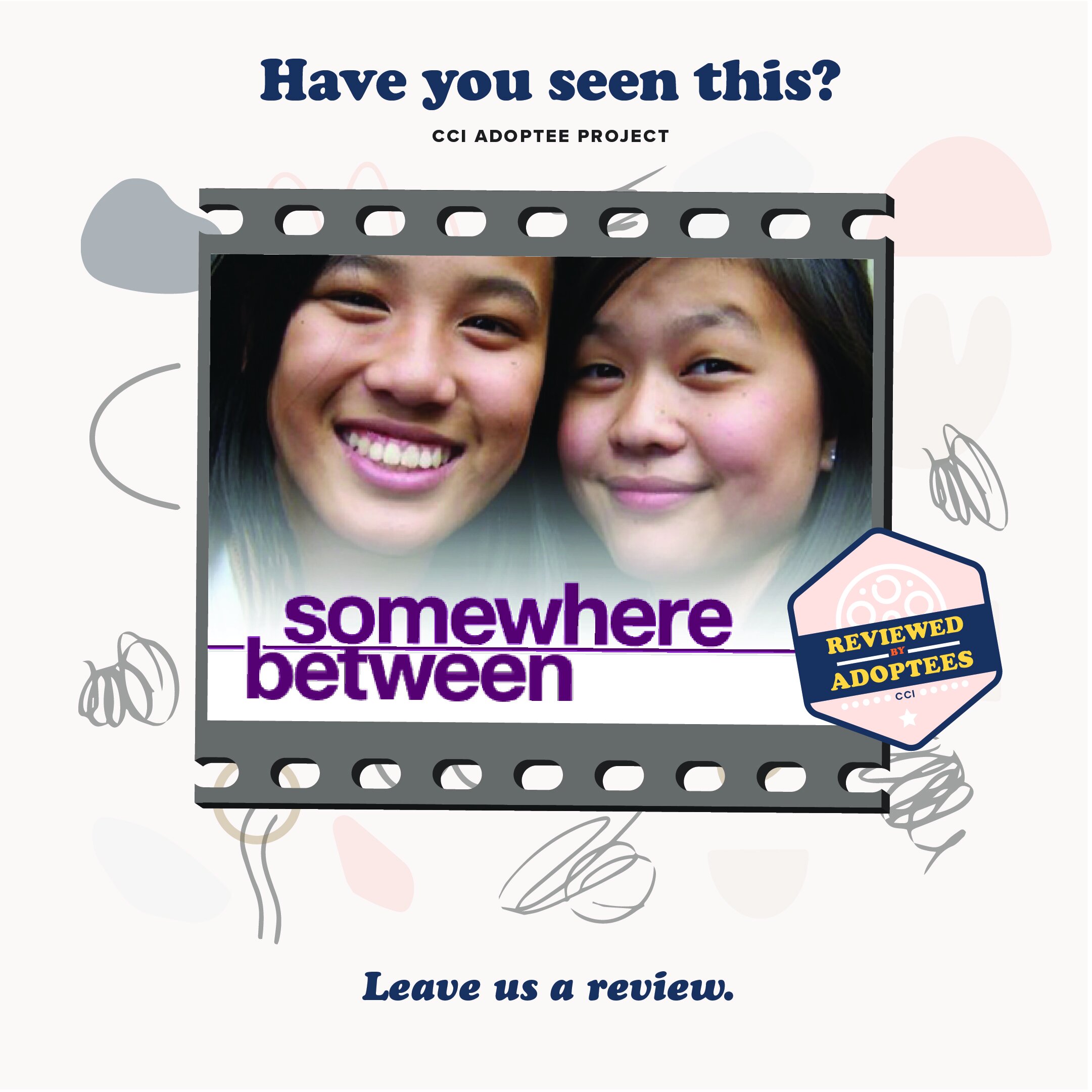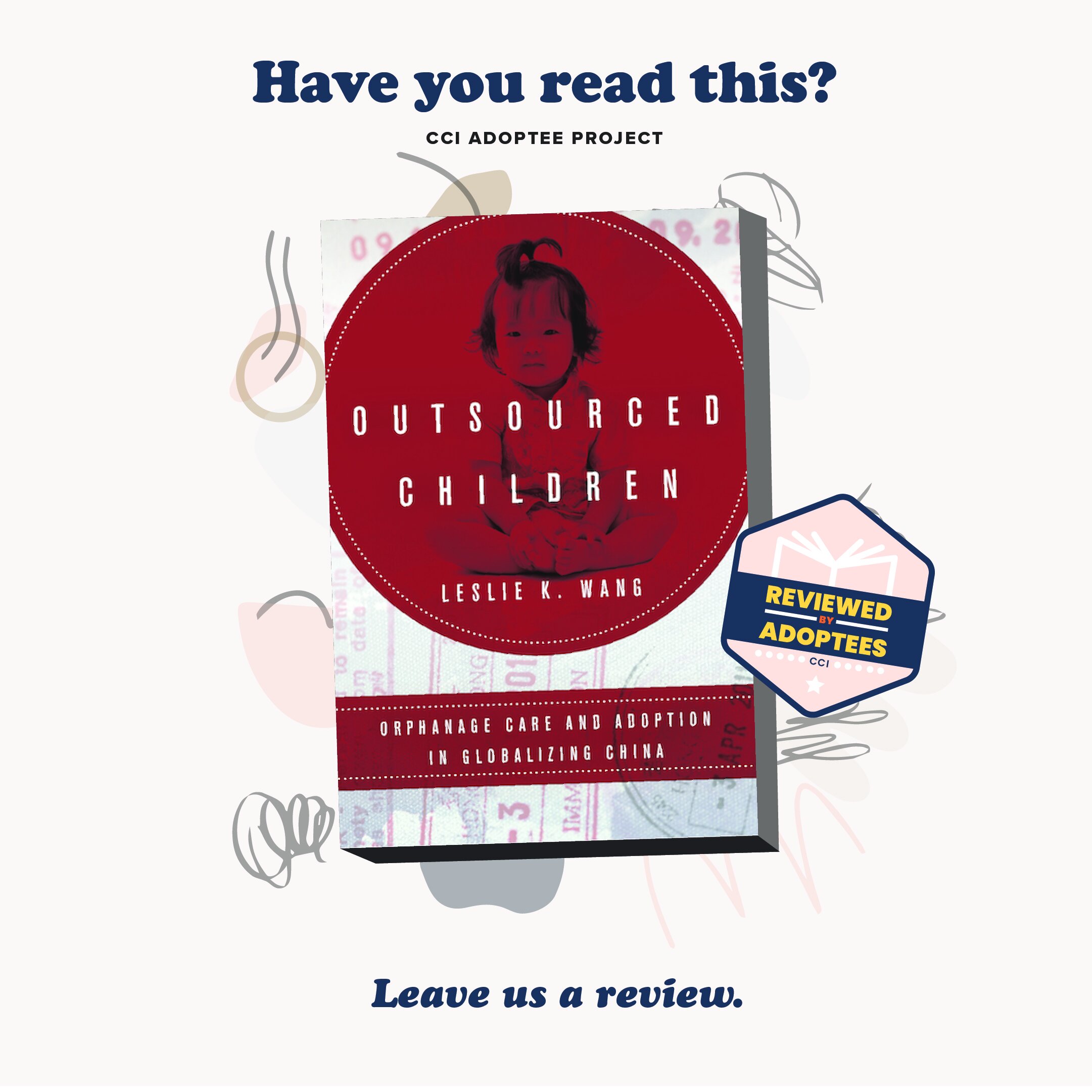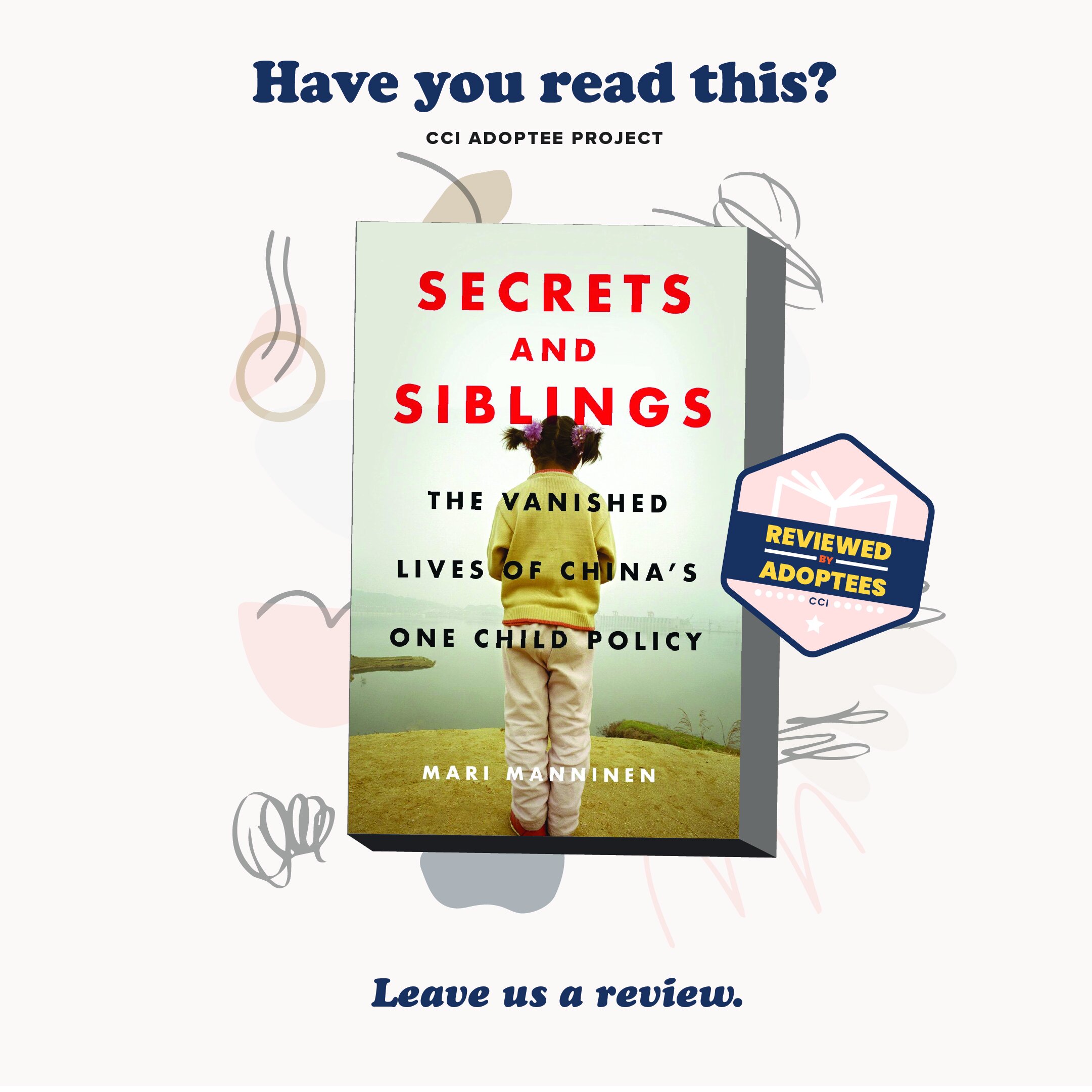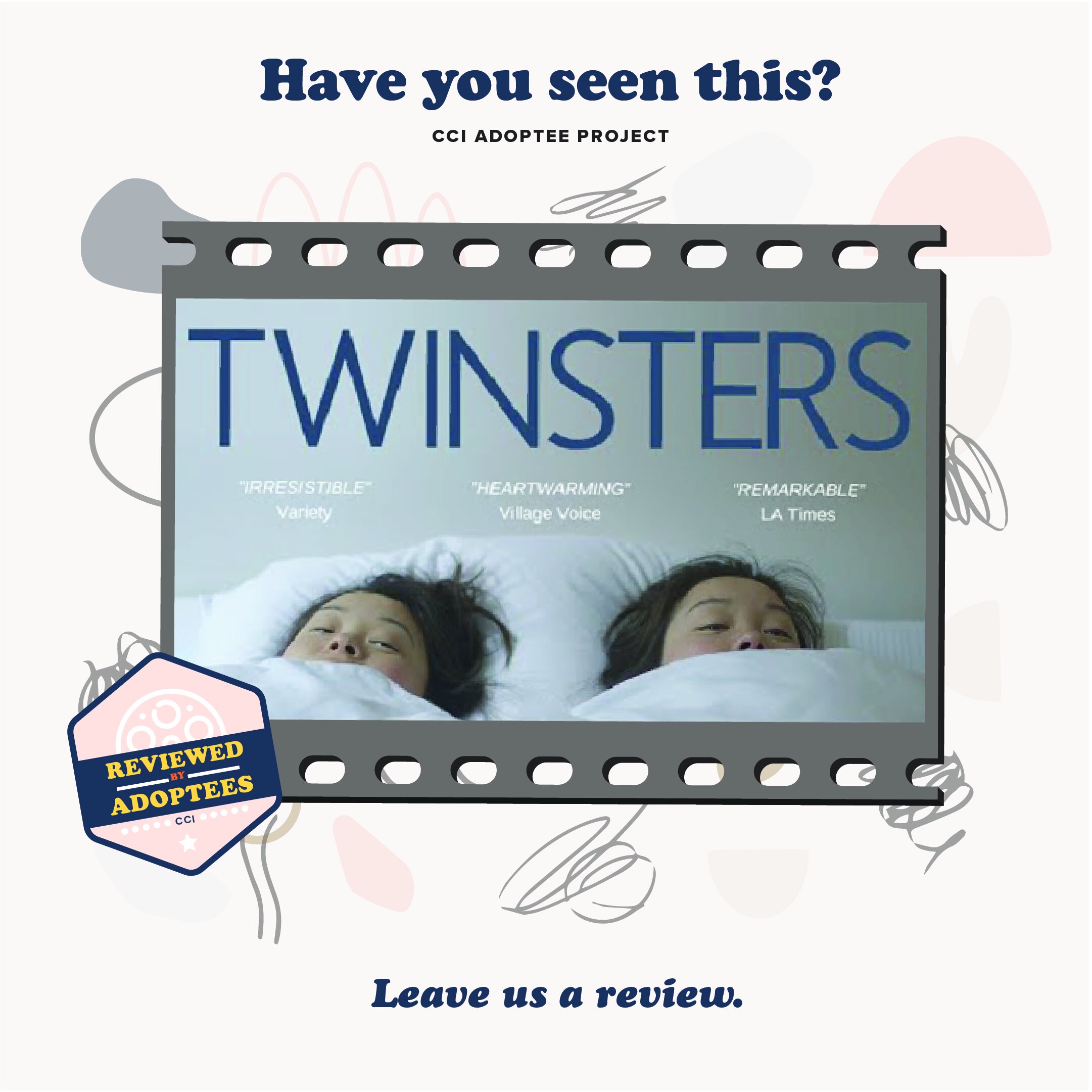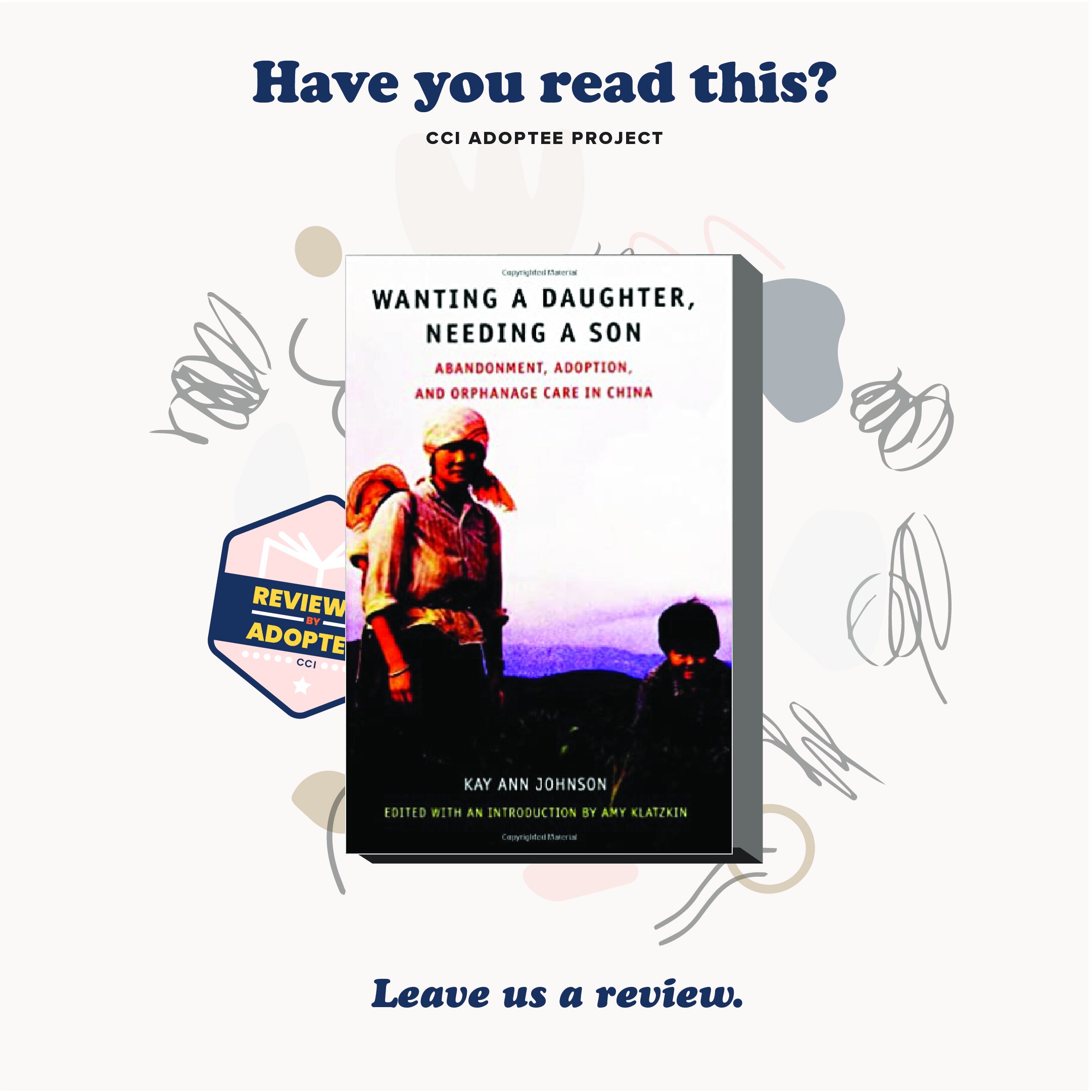CCI wants to hear your thoughts on some published materials related to transnational and transracial adoptions. In this project, we hope to share your relevant reviews and bring resources to the community that others might not have considered. Thank you for participating! By submitting this review you are giving CCI the ability to quote from you for any promotional material we may create in the future. Thank you for participating. If you've any questions, please email chinachildreninternational@gmail.com
Read Reviews by Adoptees
-
I think Johnson does an amazing job to explain some family situations with adoptions that happen domestically and also really gives Chinese adoptees who were adopted abroad a better understanding of the cultural/historical reality of Chinese families during the policy. The more terms and language we have to describe the players and benefactors of the one-child policy gives us lots to reflect on and reminds us that our adoption was not clear cut and there are a variety of reasons for why our specific abandonment happened!! Highly praise this book, go buy it now and try to buy from local book store or directly from the publisher. - Haley from Illinois, US
-
This documentary was hard to watch but really important and valuable. It broadened my understanding of how the One Child Policy was implemented and its effect on birth families and the Chinese population overall. It truly challenged the narrative I was told about my own adoption story and made me question what I thought I knew. It gave me insight into perspectives that I had never considered before, such as the stories of the family planning officials. This film is thought-provoking and eye-opening. I recommend it to adoptees who are looking to learn more about the real causes and consequences of the One-Child Policy. - Shelley from Canada
This documentary is particularly special to me because it was made by the people who actually helped me find my birth family. I never really understood how the One Child policy was implemented and what conditions were like in China at the time until watching this. I especially liked how the documentary touched upon various perspectives surrounding the One Child policy, from birth families to adoptees to family planners and many in between. It was interesting hearing those different perspectives and it raised points that hadn't occurred to me before. It's very emotional to watch, so it should definitely be viewed with a friend or loved one. Overall, the documentary really shifted how I viewed my adoption and helped me understand my birth family's position more clearly. Knowing the truth is very liberating. - Erin from Boston, US
-
The Story of China's Most Radical Experiment
Description tOne Child is an incredibly in-depth look at the One Child Policy, the historical context behind its conception, why it lasted so long and its ongoing social and economic consequences. Mei Fong strikes a great balance between historical background, analysis, and personal stories to make her messages even more impactful. Unlike China’s Hidden Children by Kay Ann Johnson (also a great read), One Child is not an academic text and much more readable in that way, though, the less formal nature of the stories almost makes it harder to read them. Fong does not focus solely on the children born under the policy but also addresses larger social aspects like the large role the government plays, not only in the enforcement of the One Child Policy, but its ongoing efforts to control its citizens and narratives. I highly recommend this book to anyone looking to learn more about the policy and its ongoing effects.ext goes here. - Hannah
-
Outsourced Children by Leslie K. Wang is an incredibly in-depth analysis of the international adoption industry, the institutional care system and relationship with foreign NGOs in China. She examines not only the factors and influences behind the demographics of the children in care, but also examines the relationship between the West and China when it comes to international adoption as well as foreign volunteers at social welfare institutions (SWIs) and the benefits and challenges that arise from it. Wang proposes that through international adoption and NGO involvement at SWIs, both China and the USA are exerting and expanding their soft power through the children in care and those who are adopted abroad.
This book is a difficult read. It is written like an academic textbook and can be hard to get through. There are also descriptions of conditions at the SWIs that are difficult to read. Interviews with Americans and other foreigners often contain racism, stereotypes and white saviourism. Despite that, I believe it’s a fascinating and informative look at an area of international adoption that hasn’t been explored enough. description - Hannah
-
This documentary addresses the complexities and pain of transracial adoption for all parties involved. It hit me hard because it was an almost replica of my story and adoption journey. From zero interest in China to a 23andMe DNA test, going to China, seeing the orphanage and the people who cared for me as a baby, to searching for a biological family. I identified with the three cousins so much that their comments were direct quotes of things I’ve said. Watching them on screen validated my experience and feelings.
This documentary is a must-watch for anyone, but I warn other adoptees to be prepared. Be sure to be in a safe place to allow yourself space and time to process. I started crying in the first scene and never really stopped. - LuLu from Mexico
-
The Vanished Lives of China’s One Child Policy by Mari Manninen
Secrets and Siblings, translated from Finnish, by Mari Manninen details stories of different individuals and families affected by China’s One Child Policy. It was written after the change to a Two-Child Policy in 2016, but before the recent loosening to a Three-Child Policy. She interviewed families, couples and individuals who were impacted and details the cultural traditions and government responses that changed how people changed their own family planning or were forced and coerced to change it. It was an incredibly interesting look into Chinese families’ lives under the policy, if they had “out-of-plan” children, their child was a “little emperor”, or they had been forced to abort or abandon them. Manninen also addressed the consequences of the skewed gender ratio, the lack of hukou and its privileges, as well as growing up in a one-child society.
I highly recommend this book, I found it very well-written and easy to follow. The almost callous way some of the interviewees described the policy, its consequences and their own support of it was hard to read and at times horrifying, despite the book doing a very good job of explaining why they would do so and how the policy is viewed in China. - Hannah


